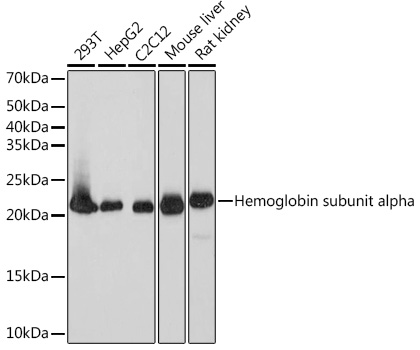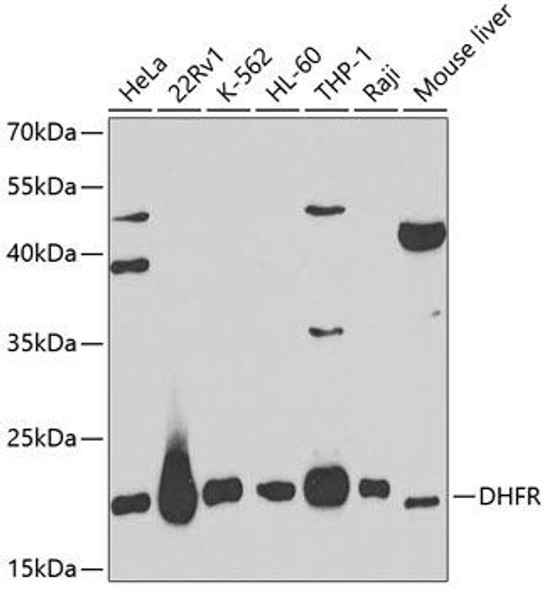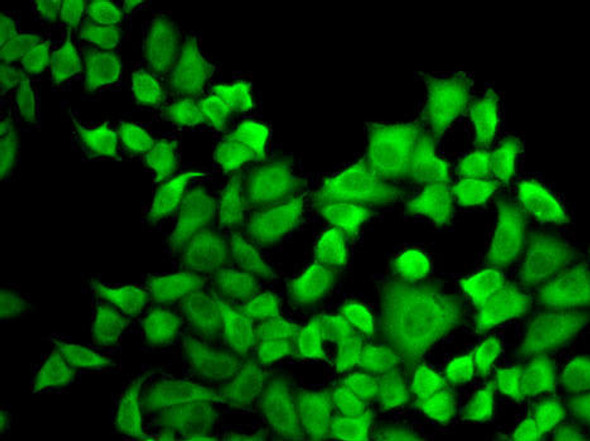Description
Anti-DHFR Antibody (CAB9299)
The DHFR Rabbit Monoclonal Antibody (CAB9299) is a powerful tool for research involving DHFR, a key enzyme involved in cellular metabolism and DNA synthesis. This antibody, developed in rabbits, is highly specific and sensitive for detecting DHFR in a variety of samples, including human tissues. It has been validated for use in Western blot applications, enabling precise and accurate analysis of DHFR expression levels.DHFR, also known as dihydrofolate reductase, is essential for the synthesis of nucleotides and DNA replication. It is a critical target for cancer chemotherapy, as inhibiting DHFR can disrupt cancer cell growth and proliferation.
Research on DHFR is important for understanding its role in cancer development and resistance to chemotherapy, as well as for developing targeted therapies to effectively treat cancer.By using the DHFR Rabbit Monoclonal Antibody (CAB9299), researchers can gain valuable insights into the expression and activity of DHFR in various biological contexts. This antibody is a valuable tool for studies in cancer biology, pharmacology, and drug development, helping to advance our understanding of DHFR and its implications for human health.
| Antibody Name: | Anti-DHFR Antibody |
| Antibody SKU: | CAB9299 |
| Antibody Size: | 20uL, 50uL, 100uL |
| Application: | WB |
| Reactivity: | Human, Mouse, Rat |
| Host Species: | Rabbit |
| Immunogen: | A synthesized peptide derived from human DHFR |
| Application: | WB |
| Recommended Dilution: | WB 1:500 - 1:2000 |
| Reactivity: | Human, Mouse, Rat |
| Positive Samples: | 293T, HepG2, C2C12, Mouse liver, Rat kidney |
| Immunogen: | A synthesized peptide derived from human DHFR |
| Purification Method: | Affinity purification |
| Storage Buffer: | Store at -20'C. Avoid freeze / thaw cycles. Buffer: PBS with 0.02% sodium azide, 0.05% BSA, 50% glycerol, pH7.3. |
| Isotype: | IgG |
| Sequence: | Email for sequence |
| Gene ID: | 1719 |
| Uniprot: | P00374 |
| Cellular Location: | |
| Calculated MW: | 21kDa |
| Observed MW: | 20KDa |
| Synonyms: | DHFRP1, DYR |
| Background: | Dihydrofolate reductase converts dihydrofolate into tetrahydrofolate, a methyl group shuttle required for the de novo synthesis of purines, thymidylic acid, and certain amino acids. While the functional dihydrofolate reductase gene has been mapped to chromosome 5, multiple intronless processed pseudogenes or dihydrofolate reductase-like genes have been identified on separate chromosomes. Dihydrofolate reductase deficiency has been linked to megaloblastic anemia. Several transcript variants encoding different isoforms have been found for this gene. [provided by RefSeq, Mar 2014] |
| UniProt Protein Function: | DHFR: Key enzyme in folate metabolism. Contributes to the de novo mitochondrial thymidylate biosynthesis pathway. Catalyzes an essential reaction for de novo glycine and purine synthesis, and for DNA precursor synthesis. Binds its own mRNA and that of DHFRL1. Defects in DHFR are the cause of megaloblastic anemia due to dihydrofolate reductase deficiency (DHFRD). DHFRD is an inborn error of metabolism, characterized by megaloblastic anemia and/or pancytopenia, severe cerebral folate deficiency, and cerebral tetrahydrobiopterin deficiency. Clinical features include variable neurologic symptoms, ranging from severe developmental delay and generalized seizures in infancy, to childhood absence epilepsy with learning difficulties, to lack of symptoms. Belongs to the dihydrofolate reductase family. |
| UniProt Protein Details: | Protein type:Cofactor and Vitamin Metabolism - one carbon pool by folate; Oxidoreductase; EC 1.5.1.3; Cofactor and Vitamin Metabolism - folate biosynthesis Chromosomal Location of Human Ortholog: 5q14.1 Cellular Component: nucleoplasm; cytosol Molecular Function:mRNA binding; drug binding; dihydrofolate reductase activity; NADP binding Biological Process: tetrahydrofolate metabolic process; vitamin metabolic process; one-carbon compound metabolic process; nitric oxide metabolic process; G1/S-specific transcription in mitotic cell cycle; tetrahydrofolate biosynthetic process; nucleotide biosynthetic process; response to methotrexate; regulation of nitric-oxide synthase activity; folic acid metabolic process; mitotic cell cycle; glycine biosynthetic process; water-soluble vitamin metabolic process; G1/S transition of mitotic cell cycle Disease: Megaloblastic Anemia Due To Dihydrofolate Reductase Deficiency |
| UniProt Code: | P00374 |
| NCBI GenInfo Identifier: | 118992 |
| NCBI Gene ID: | |
| NCBI Accession: | P00374.2 |
| Molecular Weight: | |
| NCBI Full Name: | Dihydrofolate reductase |
| UniProt Protein Name: | Dihydrofolate reductase |
| Protein Family: | Viral dihydrofolate reductase |
| UniProt Gene Name: | DHFR |
| UniProt Entry Name: | DYR_HUMAN |








